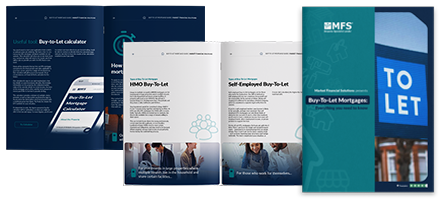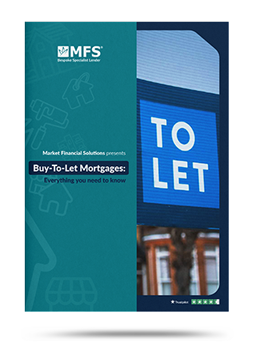Disclaimer
MFS are a bridging loan and buy-to-let mortgage provider, not financial advisors. Therefore, Investors are encouraged to seek professional advice.
The information in this content is correct at time of writing.

It may have an obvious answer, but what is a residential mortgage? Given how complicated the res mortgage market has become, it’s a worthwhile question to reassess.
A residential mortgage is used by those looking to purchase a home to live in. It is a financial agreement between a borrower and lender. The lender agrees to provide the borrower with capital to purchase a home in exchange for repayments with added interest.
Borrowers typically agree to repay mortgages over specific timeframes, known as terms. These terms are usually around 25 years in length, but they can also be lower or higher than this.
Generally, there are also three types of residential mortgage repayment plans[1]. There are repayment mortgages, where the monthly repayments will cover the loan and interest over the term. By the time the term is over, the mortgage will be completely repaid.
Interest-only residential mortgages are also available. With these, the repayments will only cover the interest on the loan. Borrowers will need to cover the original capital borrowed by the end of the term. This can be done with savings, investment returns, and more.
Then there are mortgages which combine a mixture of the two. Residential mortgages may have both repayment, and interest-only features.
How do residential mortgages work?
The residential mortgage process will vary between lenders, with each having its own preferences and ways of doing things. But, generally, borrowers will face similar application processes across the board.
To start with, borrowers need to save for a deposit. Deposits are needed to purchase a chunk of a home from the outset, while the mortgage will cover the rest. Lenders will request varying deposit sizes based on their product offering.
These deposits are used by lenders for their loan to value (LTV) ratios, which determine how risky a loan/purchase may be. The higher the LTV, the ‘riskier’ the loan. Currently, it’s possible to find up to 95%[3] (or more) LTV mortgages in the market.
Once a borrower builds up their deposit, they can turn to residential mortgage lenders to get a “Decision in Principle” (DIP). Also known as an Agreement in Principle, this is an official estimate of what a person could borrow based on their circumstances. It provides a clear figure to help with house hunting.
With this figure in mind, borrowers can seek out an appropriate property that fits within their budget. Once they’ve found a home, and the seller accepts their offer, the borrower then turns back to the lender to officially apply for a mortgage.
From here, lenders will conduct due diligence on the borrower to make sure the loan is secure. This will include reviews of the borrower’s financial position, credit checks[4], documentation gathering, and more.
Finally, if the lender approves the mortgage and everyone is happy to progress, the borrower will then work with conveyancers, estate agents, advisors, and others towards a completion date.

Are there other types of residential mortgages?
Residential mortgages themselves can be further sub-categorised into several products. There are fixed-rate mortgages, which have the same interest rate set for a number of years, and tracker mortgages, where the rate tracks the Bank of England base rate[5].
On top of these common options, borrowers may also be able to utilise discount mortgages, flexible mortgages, guarantor mortgages, and more. The right choice for them will depend on their circumstances, and preferences.
Outside of the residential market however, alternative options can be found. Commercial mortgages[6] are available and can allow borrowers to purchase commercial property, invest in business assets, or refurbish existing spaces.
There are also buy-to-let (BTL) mortgages specifically designed for landlords[7]. These loans allow landlords to buy properties that are then rented to tenants.
And of course, there are specialist mortgages. At MFS, our BTL mortgages bring bridging like speed and flexibility to the market.
Is it possible to change a residential mortgage?
It is possible to change or convert a res mortgage into a different product, but it may prove easier said than done for some.
A residential mortgage can be turned into a BTL mortgage through two means. Mortgage holders can obtain consent from their lenders to make the change. Or, they could remortgage onto a BTL loan[8]. People may opt to do this if they’re travelling soon and so would like to rent out their property while they’re away. Or they may be moving into a new home with a partner.
Homeowners may also move from a residential mortgage to a commercial product. Dentists, for example, often choose to operate out of properties that used to be their homes[9]. Although, transitioning from a residential product to a commercial one would not involve a simple switch. A new application would be needed, along with conversion approvals.
Are all mortgages regulated?
All res mortgages, and residential mortgage lenders, are regulated by the Financial Conduct Authority (FCA[10]). But, it is possible to get unregulated loans for residential investments, which may prove more flexible for property investors.
At MFS, we have a range of bridging products that can help with a range of residential investments. Our residential bridging options, large loans, auction finance, and more can all help with acquiring residential assets. We can provide funding for semi-detached homes, bungalows, flats, and more.
What’s more, our development exit loans, refinancing deals, and second charge finance can help consolidate complicated financial setups, and provide a way forward for residential investors.
To find out more about our products, underwriting capabilities, or funding lines – would-be borrowers should reach out to us today.
The Complete Guide to
Buy-to-Let Mortgages
Everything you need to know
- Fundamentals
- Different mortgage types
- Useful tools
- Industry stats & more
[1] https://www.unbiased.co.uk/discover/mortgages-property/buying-a-home/types-of-mortgage
[2] https://www.teito.co.uk/deposits/50-ltv-mortgages/
[3] https://www.rightmove.co.uk/news/articles/property-news/current-uk-mortgage-rates/
[4] https://www.equifax.co.uk/resources/mortgage/how-do-mortgage-applications-work.html#:~:text=They%20will%20ask%20for%20some,you%20fulfil%20all%20their%20requirements.
[5] https://www.which.co.uk/money/mortgages-and-property/mortgages/types-of-mortgage/mortgage-types-explained-aIGHA3F2WqyQ
[6] https://www.barclays.co.uk/business-banking/borrow/commercial-mortgages/
[7] https://www.moneysupermarket.com/mortgages/buy-to-let/
[8] https://www.charcol.co.uk/news-and-opinions/ask-the-mortgage-experts/can-i-convert-my-mortgage-to-buy-to-let-4177/
[9] https://www.onlinemortgageadvisor.co.uk/commercial-mortgages/residential-to-commercial/#:~:text=You’ll%20need%20a%20strong,up%20other%20assets%20as%20security
[10] https://www.fca.org.uk/











